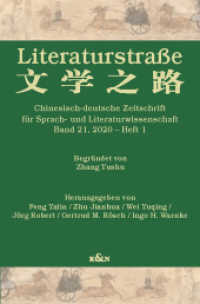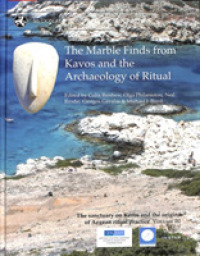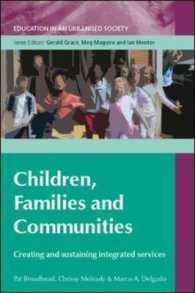Full Description
This book examines the relationship between political identity and variation from a diachronic perspective, and how vernacular features could index political and ideological affiliations. Specifically, it explores the use of written Scots in the correspondence of Scottish politicians active during the Union of the Parliaments debates at the turn of the eighteenth century. Drawing from the frameworks of First, Second and Third Wave perspectives on variation, and combining macro-social statistical modelling with microsocial analysis, broad socio-political factors are empirically investigated alongside plausible stylistic intentions in conditioning observed linguistic behaviour. Detailing the process of building a corpus, identifying relevant Scots features, and presenting analyses across time, sociolinguistic factors, and individual recipients, this volume provides the first in-depth quantitative and sociolinguistic examination of early modern Scots and its expanding indexical roles.
Contents
List of Figures - List of Tables - Preface - Acknowledgements - List of Abbreviations - Introduction - Chapter 1 'For the Union makes us strong?': Cause, concern and consequence in the lead up to the Union of Parliaments - Chapter 2 'A small intermixture of provincial peculiarities may, perhaps, have an agreeable effect': Scots, its history and its status by 1700 - Chapter 3 'Using the present to explain the past?' Historical sociolinguistics, the Three Waves and political identity as tools for diachronic corpus investigation - Chapter 4 From documents to database: The identification, digitisation and compilation of archival material into a text-searchable novel corpus - Chapter 5 'We can never expect a more favourable juncture for completing this Union, than at present': Frequencies of Scots during and beyond the Union debates - Chapter 6 MCA and brms: A two-fold statistical approach to multifactor regression analysis of historical written Scots use and the role of political identity - Chapter 7 'I think I have quite wearied you and almost myself too by soe long a scroll': A micro-analysis into intra-writer variation and the role of political and stylistic goals in written Scots use - Chapter 8 Eighteenth-century written Scots through macro and micro perspectives - Chapter 9 Swansong or key-change? Concluding thoughts on written Scots at the turn of the century - Bibliography - Appendices








